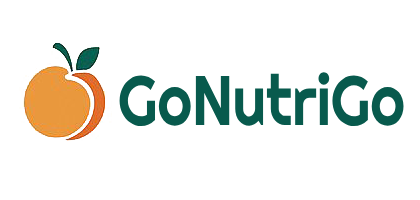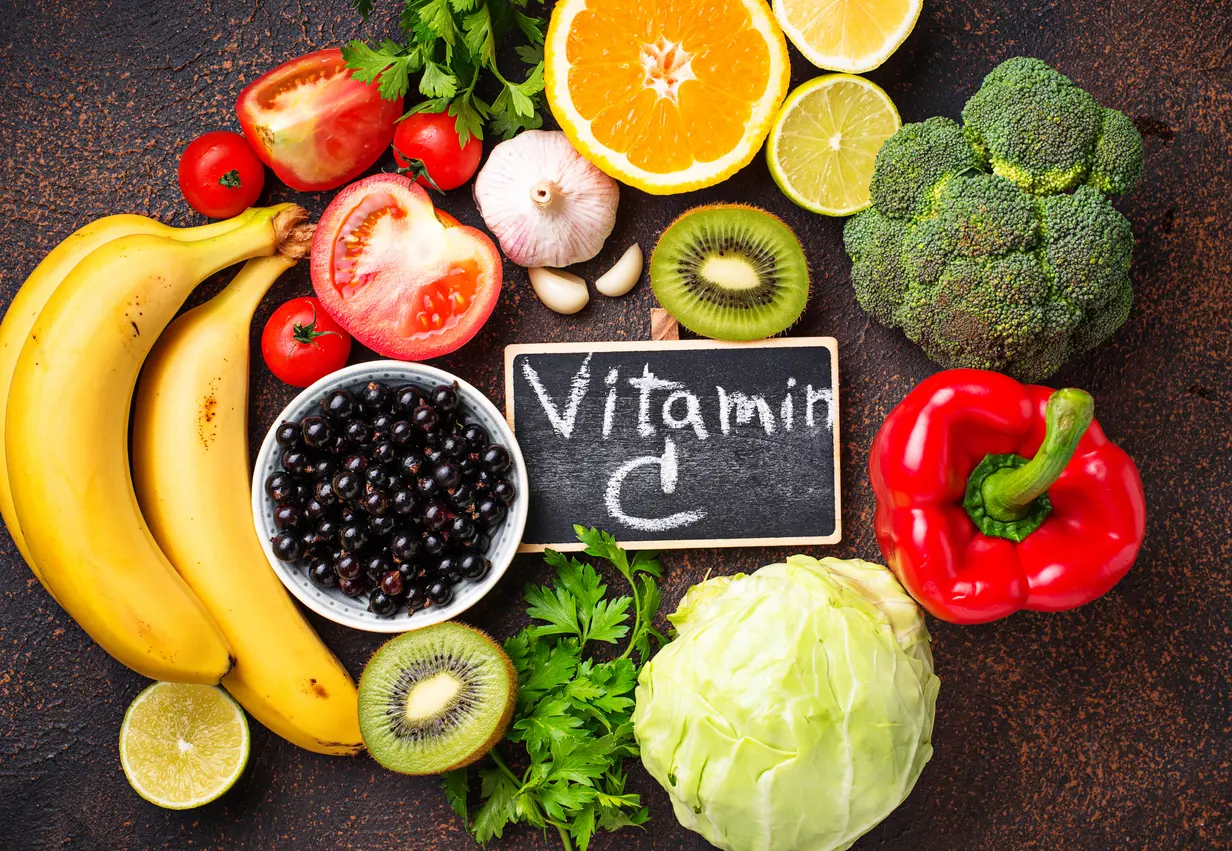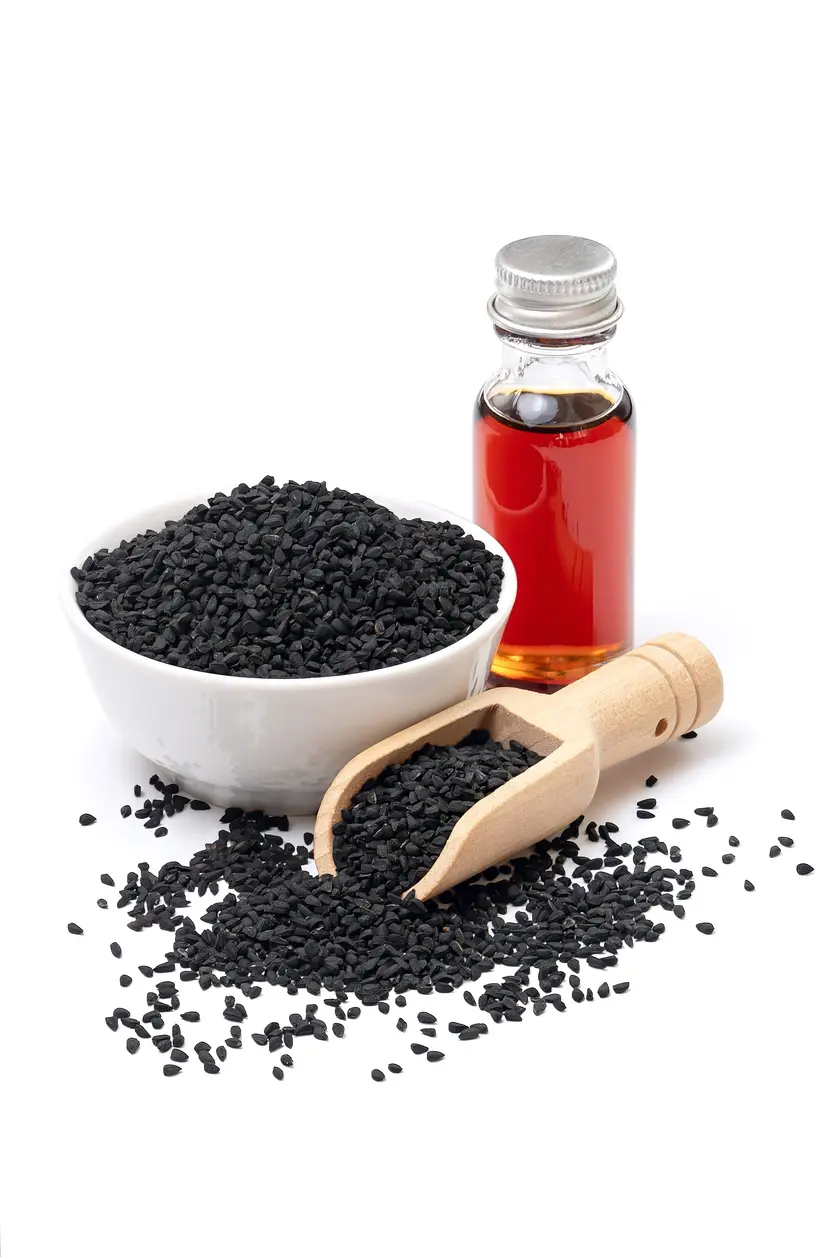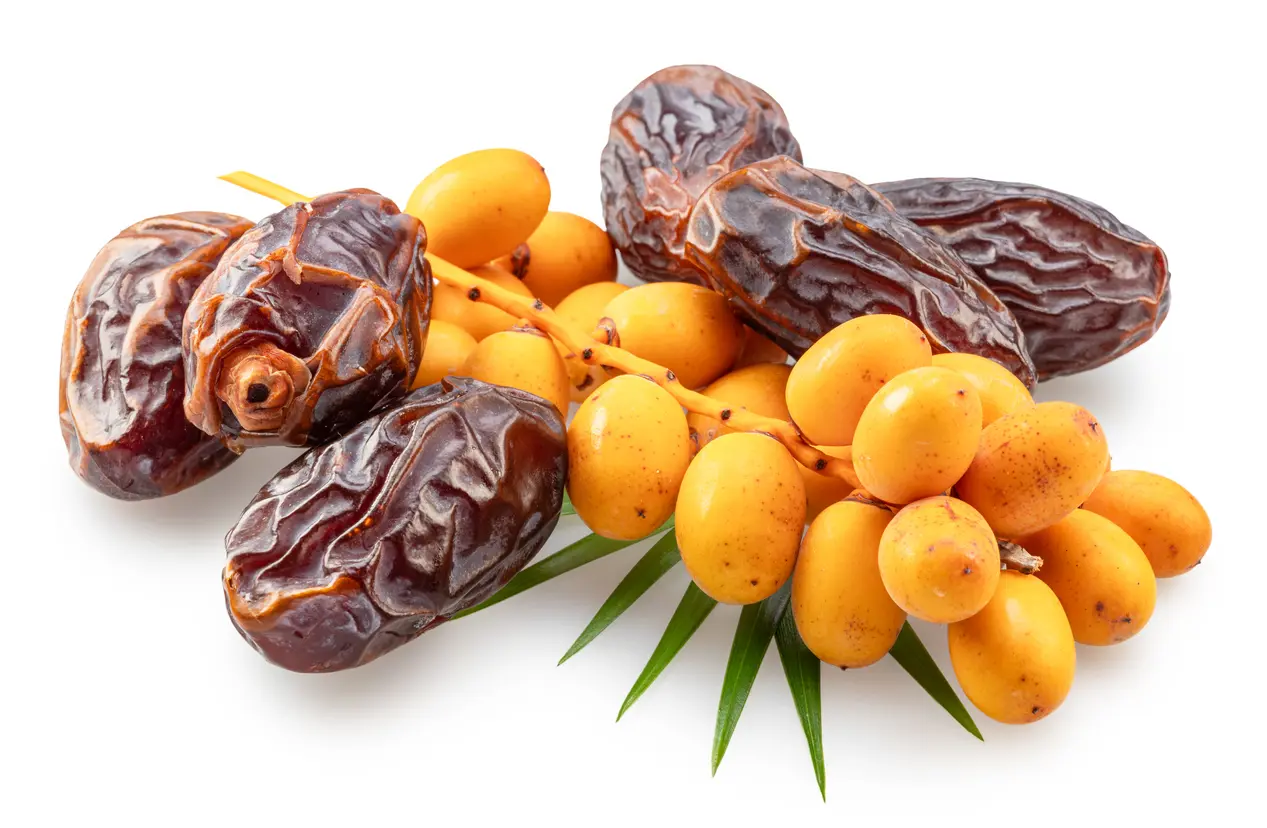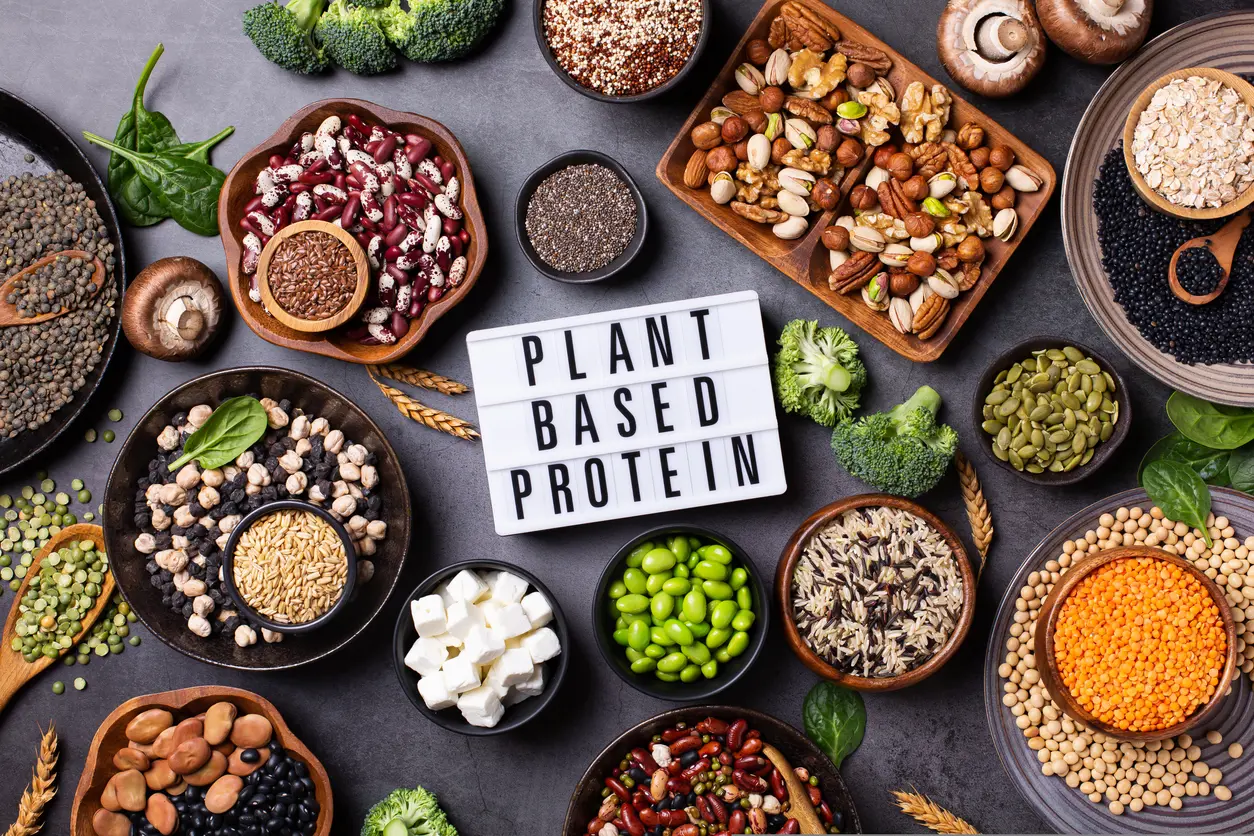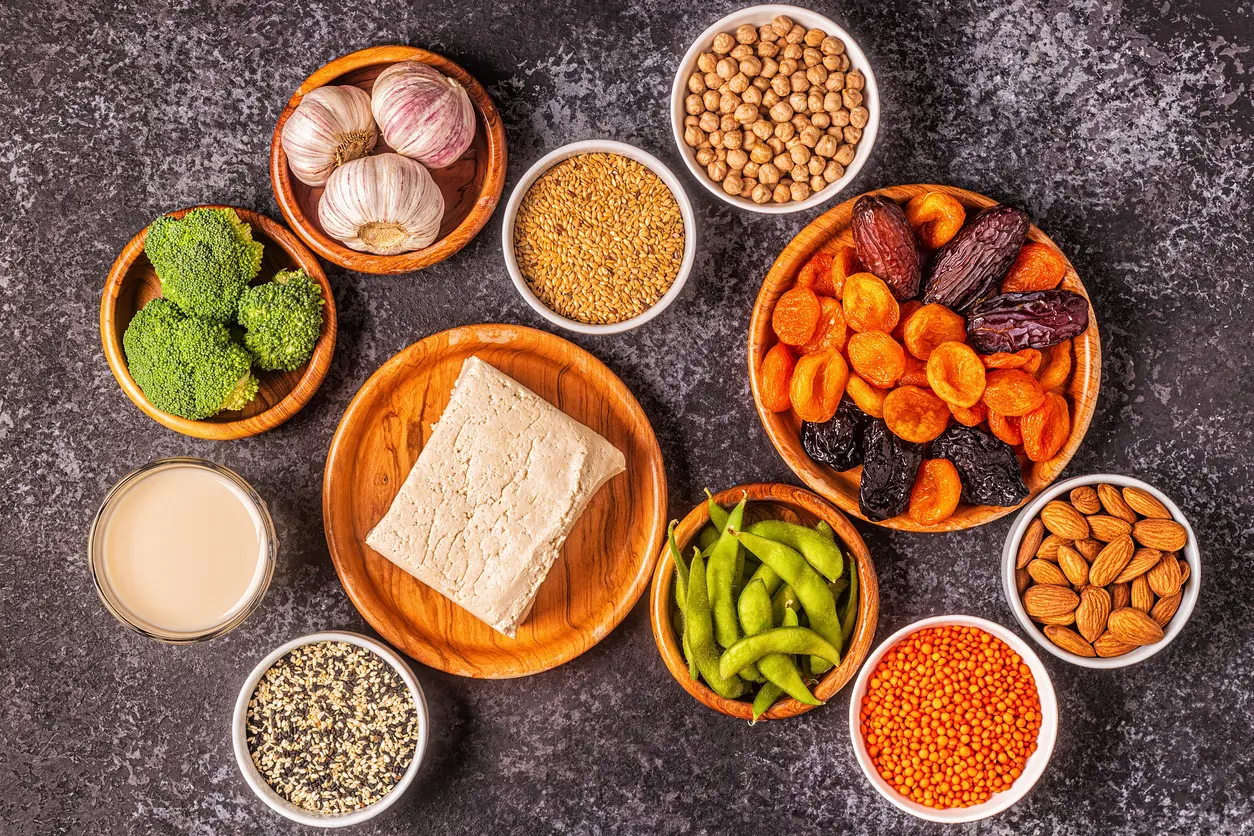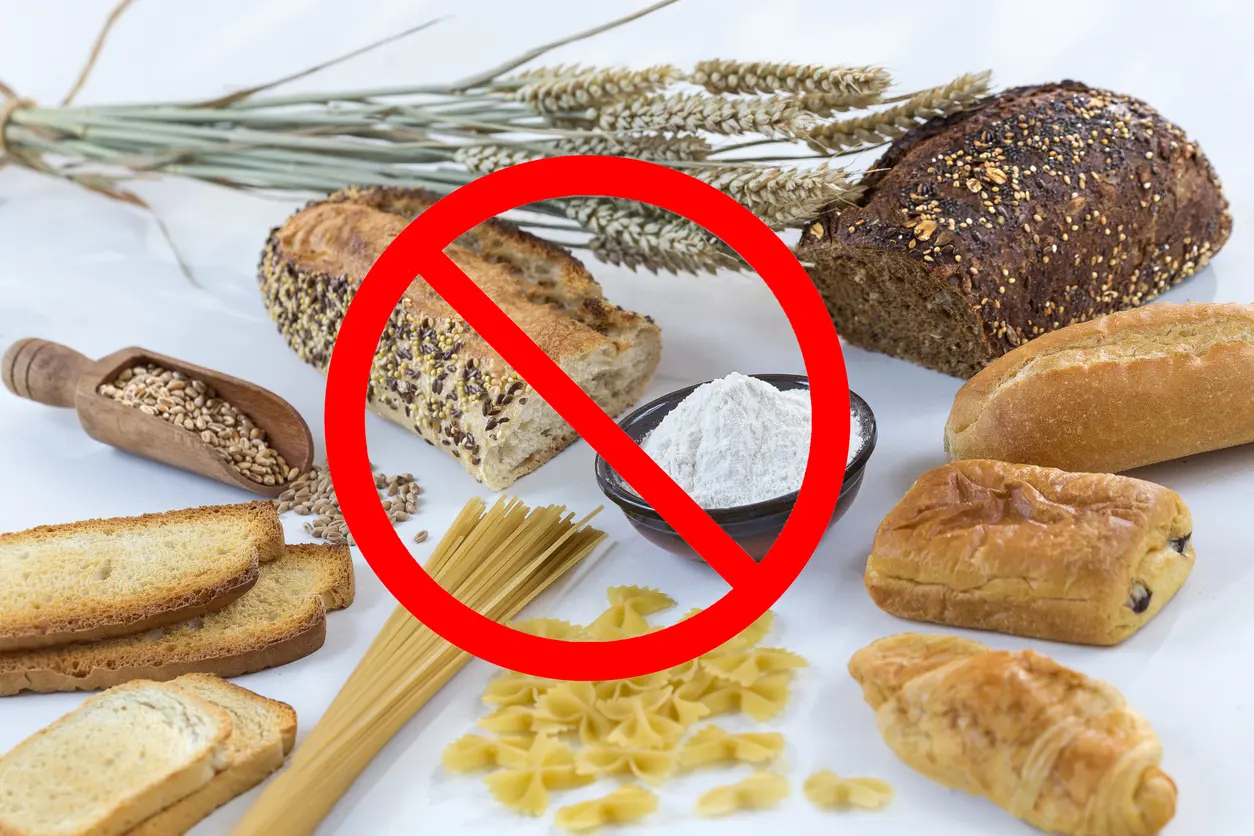Pumpkin Seeds: Benefits and Nutrition Facts
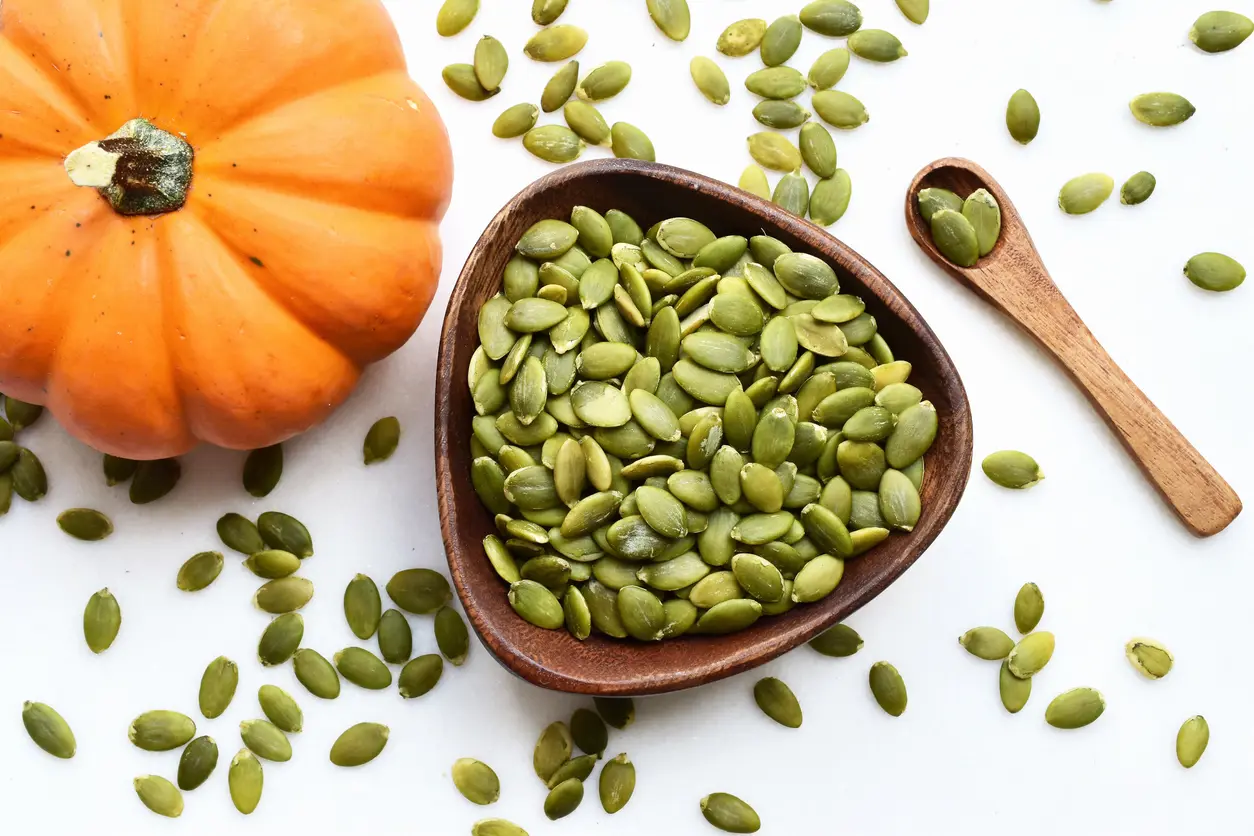
Pumpkin seeds, sometimes known as pepitas, are more than just a seasonal snack. Pepitas are small, flat, green seeds that have earned their place on many superfood lists due to their impressive nutrient profile. Whether sprinkled on oatmeal or mixed into energy bars, pumpkin seeds are becoming a go-to option for plant-based eaters and health-conscious snackers.
In this article, you'll learn all about pumpkin seeds' nutrition facts, explore the top health benefits they offer, and discover simple ways to include them in your meals. If you've ever wondered, "Are pumpkin seeds good for you?" the answer is a resounding yes - and here's why.
It’s important to note there’s a difference between whole pumpkin seeds and pepitas. Whole pumpkin seeds include the white outer layer or hull, which contains the bulk of the fiber. They are also bigger in size and have a higher percentage of both carbohydrates and fiber. For the purpose of this article, unless it’s specifically stated (as below in the nutrition facts), it’s safe to assume both varieties offer health benefits and can be consumed in the same way.
Pumpkin Seeds Nutrition Facts
Per 1 oz serving of whole roasted pumpkin seed kernels [1] USDA FoodData Central. Pumpkin seed kernels, roasted. US Department of Agriculture. Accessed July 18, 2025.
- Calories: 126
- Protein: 5.3 grams
- Fat: 5.5 grams (including omega-6s and monounsaturated fats)
- Carbohydrates: 15.3 grams
- Fiber: 5.2 grams
Pepitas Nutrition Facts
Per 1 oz serving of raw pepitas [1] USDA FoodData Central. Pumpkin seed kernels, roasted. US Department of Agriculture. Accessed July 18, 2025. , [2] Ryan E, Galvin K, O’Connor TP, Maguire AR, O’Brien NM. Phytosterol, squalene, tocopherol content and fatty acid profile of selected seeds, grains, and legumes. Plant Foods Hum Nutr. 2007;62(3):85–91.
- Calories: 151
- Protein: 6.6 grams
- Fat: 12.3 grams (including omega-6s and monounsaturated fats)
- Carbohydrates: 4.7 grams
- Fiber: 1.8grams
Key Vitamins and Minerals
Per 1.25 oz serving of raw pepitas [3] Batool M, Ranjha MMAN, Roobab U, et al. Nutritional Value, Phytochemical Potential, and Therapeutic Benefits of Pumpkin (Cucurbita sp.). Plants (Basel). 2022;11(11):1394.
- Magnesium: 190 mg
- Zinc: 2.5 mg
- Iron: 2.8 mg
- Phosphorus: 397 mg
- Manganese: 1.4 mg
- Vitamin K, E, B2: Trace to moderate amounts
- Antioxidants and Phytosterols: Phenolic acids, vitamin B3, C, E compounds
With pumpkin seed protein levels at about 7 grams per ounce, they’re one of the highest plant-based protein snacks per calorie. Aim for a single serving, which amounts to a little less than ¼ cup when snacking.
Health Benefits of Pumpkin Seeds
1. Rich in Antioxidants
Pumpkin seeds contain phenolic compounds and vitamin E, which help fight oxidative stress and inflammation. [3] Batool M, Ranjha MMAN, Roobab U, et al. Nutritional Value, Phytochemical Potential, and Therapeutic Benefits of Pumpkin (Cucurbita sp.). Plants (Basel). 2022;11(11):1394. This may support cellular health and reduce the risk of chronic disease. Swap out walnuts for raw, unsalted pepitas in your next batch of muffins.
2. Heart Health Support
With heart-friendly fats, magnesium, and antioxidants, pumpkin seeds may help lower blood pressure and improve cholesterol levels. [3] Batool M, Ranjha MMAN, Roobab U, et al. Nutritional Value, Phytochemical Potential, and Therapeutic Benefits of Pumpkin (Cucurbita sp.). Plants (Basel). 2022;11(11):1394. Sprinkle on salad or add to avocado toast for a crunchy nutrient boost.
3. Strengthens Immune Function
High in zinc and vitamin E, pumpkin seeds may help support immune defense. [3] Batool M, Ranjha MMAN, Roobab U, et al. Nutritional Value, Phytochemical Potential, and Therapeutic Benefits of Pumpkin (Cucurbita sp.). Plants (Basel). 2022;11(11):1394. , [4] Syed QA. Nutritional and Therapeutic Importance of the Pumpkin Seeds. Biomedical Journal of Scientific and Technical Research. 2019;21(2):3586. Keep a small container in your bag for a zinc-rich, on-the-go snack.
4. Improves Sleep Quality
Pumpkin seeds are a natural source of tryptophan, a nutrient that promote better sleep. [5] Binks H, Vincent GE, Gupta C, Irwin C, Khalesi S. Effects of diet on sleep: a narrative review. Nutrients. 2020;12(4):936. Try a one ounce portion with fruit or yogurt before bed.
5. Supports Prostate and Bladder Health
Traditionally used in men’s health, pumpkin seed oil has been studied for prostate support and urinary function. [7] National Institutes of Health, Office of Dietary Supplements. Magnesium Fact Sheet for Health Professionals. Published June 2, 2022. Accessed July 18, 2025. Mix an ounce of roasted, salted pepitas with air popped popcorn for a snack with staying power.
6. Helps Regulate Blood Sugar
Low in carbs, high in fiber, and protein-rich, pumpkin seeds may help maintain stable blood sugar levels if eaten in 2 ounce portions alongside a carbohydrate rich meal. [3] Batool M, Ranjha MMAN, Roobab U, et al. Nutritional Value, Phytochemical Potential, and Therapeutic Benefits of Pumpkin (Cucurbita sp.). Plants (Basel). 2022;11(11):1394. Try them as a crunchy topping on salads or grain bowls to boost satisfaction and add texture when eating.
7. Improve Mood and Mental Health
Magnesium, zinc, and tryptophan all play roles in mood regulation, and magnesium is also known to lower the risk of heart disease and high blood pressure. [6] Tardy AL, Pouteau E, Marquez D, Yilmaz C, Scholey A. Vitamins and minerals for energy, fatigue, and cognition: a narrative review of the biochemical and clinical evidence. , [7] National Institutes of Health, Office of Dietary Supplements. Magnesium Fact Sheet for Health Professionals. Published June 2, 2022. Accessed July 18, 2025. Snacking on trail mix made with pumpkin seeds, dried fruit, and mini dark chocolate chips may support overall mental well-being.
8. Boosts Energy and Metabolism
Iron, B vitamins, and magnesium help with energy production. [7] National Institutes of Health, Office of Dietary Supplements. Magnesium Fact Sheet for Health Professionals. Published June 2, 2022. Accessed July 18, 2025. Add raw pepitas to oatmeal or overnight oats for a plant-powered energy boost.
9. Supports Bone Health
Rich in phosphorus, magnesium, and zinc, pumpkin seeds can contribute to stronger bones. [3] Batool M, Ranjha MMAN, Roobab U, et al. Nutritional Value, Phytochemical Potential, and Therapeutic Benefits of Pumpkin (Cucurbita sp.). Plants (Basel). 2022;11(11):1394. Combine with dairy or fortified plant milk for even more benefits - think roasted, salted pumpkin seeds paired with a cheese stick or cinnamon sugar pumpkin seeds on top of chia pudding.
10. Helps with Weight Management
Thanks to their combination of protein, fiber, and healthy fat, pumpkin seeds may promote fullness. Blend into a variety of dips and sauces to help boost satiety - think pepita hummus, pesto, or tapenade.
Where to Buy Pumpkin Seeds
You can buy pumpkin seeds at almost any location that sells food, from the gas station to the grocery store. Be sure to double check labels to see if you are getting salted, roasted, or flavored seeds.
You can also get them straight out of a pumpkin! To prepare fresh pumpkin seeds, scoop them out of the pumpkin, then rinse or soak to remove the stringy bits (which are edible, but not everyone's favorite). Enjoy them raw or toss with olive oil and roast at 300°F for 30-40 minutes until crispy and golden. Add a ½ teaspoon of salt or toss with 1-2 teaspoons of cinnamon and sugar for a sweet and crunchy snack.
How to Store Pumpkin Seeds
Pumpkin seeds and pepitas should be stored in a cool, dark space in an airtight container. Thanks to the high amount of heart healthy fat they contain, they are prone to spoiling if left in the heat (no tossing trail mix into the glove box on a hot summer day!). If you have space in the freezer or refrigerator, you can also store them in there to extend their shelf life.
How to Eat Pumpkin Seeds/Pepitas
- Raw vs. Roasted: Both offer different sensory and health benefits. Roasting pumpkin seeds helps to enhance their flavor while raw pumpkin seeds contain more antioxidants.
- Salted vs. Unsalted: Choose unsalted or lightly salted to keep sodium levels low for better heart health.
- Whole Seeds vs. Pepitas: Pepitas are de-shelled seeds and easier to digest. If you’re looking for a high fiber plant-based protein, opt for the whole seed.
Easy Ways to Use Pumpkin Seeds
- Sprinkle on yogurt, oatmeal, cereal, or smoothie bowls
- Mix into granola, trail mix, or popcorn
- Add to salads, grain bowls, or roasted vegetables
- Swap them in as a pine nut substitute for pesto
- Use as a topping for baked goods or casseroles
- Press into homemade granola bars or energy balls
- Blend with beans for a protein packed hummus dip
- Process into pumpkin seed butter and use on sandwiches
- Smash seeds and use with breadcrumbs to coat meat or fish
How Much to Eat & Precautions
- Recommended Serving: 28g per day or a little less than ¼ cup [1] USDA FoodData Central. Pumpkin seed kernels, roasted. US Department of Agriculture. Accessed July 18, 2025.
- Watch Portion Sizes: High in calories, so it’s helpful to measure portions instead of eyeballing
- Possible Allergies: Rare, but possible - introduce slowly if trying for the first time
- Low-Sodium Choices: Opt for dry-roasted, unsalted versions to support blood pressure
- Medication Interactions: Thanks to the high Vitamin K content and diuretic effect of pumpkin seeds, be sure to ask your doctor before eating if you currently take a diuretic, blood thinner, or blood pressure medication
- Kidney Stones: Pumpkin seeds contain oxalates, which may be a concern for those prone to kidney stones. If you’re unsure if they will affect you, talk with your provider before adding them in to your diet
- Potential Choking Hazard: Due to their small size, toddlers and young children should always be supervised when eating pepitas and pumpkin seeds. The seeds can also be ground into pumpkin seed butter or smashed into smaller chunks for safety.
Conclusion
Pumpkin seeds offer a big nutrition boost in a small package. From supporting heart health to improving sleep and boosting immune function, they deserve a spot in your daily diet. They're versatile, affordable, accessible, and easy to enjoy in both sweet and savory dishes.
By incorporating pumpkin seeds in moderation, you can enjoy their many benefits without eating to excess. So the next time you're looking for a satisfying and nutrient-dense snack, reach for a handful of these power-packed seeds.
Was this article helpful?
-
Pumpkin seed kernels, roasted. US Department of Agriculture. Accessed July 18, 2025.; USDA FoodData Central. ;
https://fdc.nal.usda.gov/ -
Phytosterol, squalene, tocopherol content and fatty acid profile of selected seeds, grains, and legumes. Plant Foods Hum Nutr. 2007;62(3):85–91.; Ryan E, Galvin K, O’Connor TP, Maguire AR, O’Brien NM. ;
https://pubmed.ncbi.nlm.nih.gov/17594521/ -
Nutritional Value, Phytochemical Potential, and Therapeutic Benefits of Pumpkin (Cucurbita sp.). Plants (Basel). 2022;11(11):1394.; Batool M, Ranjha MMAN, Roobab U, et al. ;
https://pmc.ncbi.nlm.nih.gov/articles/PMC9182978/ -
Nutritional and Therapeutic Importance of the Pumpkin Seeds. Biomedical Journal of Scientific and Technical Research. 2019;21(2):3586.; Syed QA. ;
https://biomedres.us/pdfs/BJSTR.MS.ID.003586.pdf -
Effects of diet on sleep: a narrative review. Nutrients. 2020;12(4):936.; Binks H, Vincent GE, Gupta C, Irwin C, Khalesi S. ;
https://pubmed.ncbi.nlm.nih.gov/32230944/ -
Vitamins and minerals for energy, fatigue, and cognition: a narrative review of the biochemical and clinical evidence. ; Tardy AL, Pouteau E, Marquez D, Yilmaz C, Scholey A. ;
https://pmc.ncbi.nlm.nih.gov/articles/PMC7019700/ -
National Institutes of Health, Office of Dietary Supplements. Magnesium Fact Sheet for Health Professionals. Published June 2, 2022. Accessed July 18, 2025. ;
https://ods.od.nih.gov/factsheets/Magnesium-HealthProfessional/

